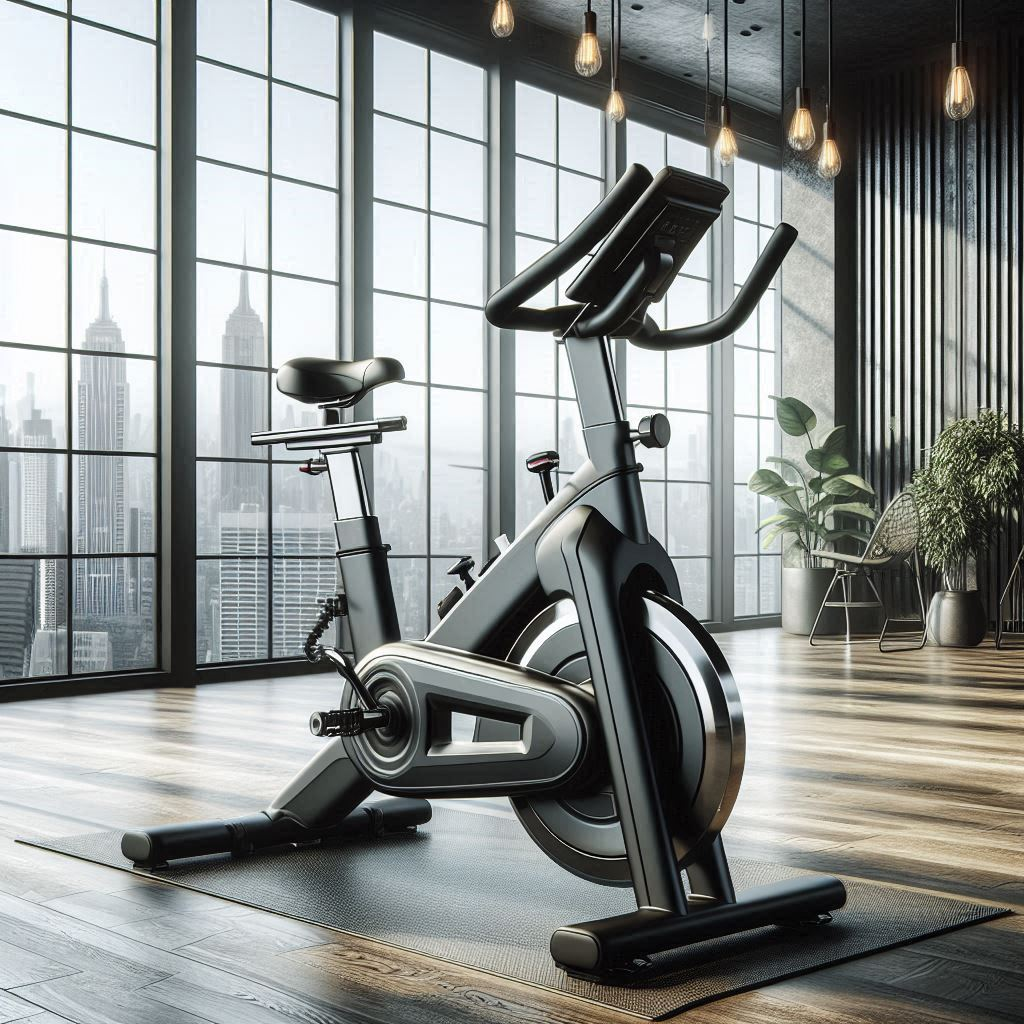Peloton and Yesoul: Which Indoor Cycling Experience Reigns Supreme?
Let’s get real here. If you’re trying to decide between the premium, content-heavy, Peloton and the budget-friendly, versatile, Yesoul, you’re after a serious, high-intensity, motivational home exercise bike that doesn’t just collect dust in the corner. You want it to be something you will actually use — something that fits your busy, focus-driven, fit-person lifestyle, your long-range, health-based, personal fitness goals and, let’s be honest, your hard-earned, budget-tight, wallet-friendly budget.
Why Compare Peloton and Yesoul?
Both Peloton and Yesoul are among some of the most popular in-home, interactive compact bikes on the market today, but they attract two completely different types of riders. If Peloton is the “Rolls Royce” of high-end, tech-integrated, luxury smart bikes, a high-end status symbol so to speak, then Yesoul is the reliable, budget-friendly and value-based, virtually knock-off version that gets the job done without shocking your purse, wallet or affecting your pocket-book.
Peloton vs Yesoul: The Basic, Must-Know, Quick-Take Information
The top-quality, brand-driven, Peloton bike is all about that premium, immersive, tech-powered experience. The Yesoul bike, on the other hand, focuses on affordability, core functionality, and accessible options—keeping costs low while delivering a practical, comfortable, and versatile workout. Let’s take a closer look at the core, feature-filled, critical differences between them.
Peloton vs Yesoul Features: What Are You Really Paying For?
Built-In, HD, Touchscreen Experience
Peloton’s Built-In, Full-HD, Swiveling Touchscreen
Peloton’s integrated, high-definition, touchscreen display is a huge selling point. The standard, high-performance, Peloton bike has a 21.5-inch, HD, crisp touchscreen, while the advanced, upgraded, Bike+ comes with a 23.8-inch, high-quality, rotating screen that’s perfect for following along with off-bike, guided, on-screen workouts.
Yesoul’s Adjustable, Flexible, Device-Compatible Tablet Holder
Yesoul skips the built-in, fancy, high-tech screen and instead provides a sturdy, adjustable, multi-angle tablet holder where you can mount any compatible device. You’ll stream classes via the Yesoul app or other popular, fitness-friendly, cycling apps like Zwift and Kinomap. While it’s not as seamless as having a high-definition, stationary, integrated screen on the bike, this setup is flexible.
Resistance Levels and Cycling Experience
Peloton’s High-End, Magnetic, Resistance System
The Peloton’s smooth, magnetic resistance system offers a buttery-smooth, ultra-adjustable, low-impact cycling experience. With 100 adjustable resistance levels, you get the fine-tuned, pinpoint control, and detail-oriented options needed for challenging interval sessions and personalized workouts.
Yesoul’s High-Quality, Magnetic, Resistance System
Yesoul uses a similar, magnet-powered, smooth resistance system. Although it doesn’t offer the same high-precision, extensive, level-based control as Peloton, it’s effective, intuitive, and practical enough for most fitness enthusiasts.
Peloton vs Yesoul Content: Are the Classes Really That Different?
Peloton’s Premium, Variety-Packed, High-Quality Classes
Peloton’s biggest draw is its class-focused, variety-rich, highly engaging content. You’re not just getting cycling-only, repetitive, on-screen workouts; you’re diving into a vast, multi-category, full-body library with thousands of live, high-intensity, instructor-led classes in everything from HIIT and yoga to strength training.
Yesoul’s Simple, Beginner-Friendly, Flexible Content
Yesoul has a basic, cycling-focused, straightforward library of classes through the Yesoul app, which is perfect if you’re interested in simple, no-nonsense, cycling-only guidance. However, the flexible, compatible, app-ready setup lets you connect with other third-party, fun and interactive, fitness-driven apps.
Price Comparison: Peloton vs Yesoul—What’s the Real Cost?
Upfront, Investment-Heavy, High-Value Costs
- Peloton’s base model starts at around $1,500, with the high-end, advanced, Bike+ model costing even more.
- Yesoul, on the other hand, keeps costs low, typically under $500, making it a wallet-friendly, entry-level, high-value choice for budget-conscious buyers.
Long-Term, Subscription-Based, Content-Driven Costs
Peloton’s $44 monthly subscription fee gets you the top-tier, constantly-updated, high-quality content library. For some, this high-cost, all-inclusive, premium membership can be totally worth it.
Yesoul’s $15 monthly app subscription is a more budget-friendly, low-cost, simple alternative that gives you basic content.
User Experience: Peloton vs Yesoul for Different Types of Riders
Peloton for Goal-Oriented, Advanced, Long-Term Fitness Enthusiasts
Peloton’s data-rich, leaderboard-focused, high-energy ecosystem is perfect for intermediate to advanced users who want to track every detail, set long-term goals, and stay motivated.
Yesoul for Practical, Casual, Cost-Conscious Riders
Yesoul is fantastic, accessible, and affordable for those new to cycling or looking for a reliable, no-frills, high-value bike. It’s budget-friendly, easy-to-use, and compact enough to fit into smaller spaces, making it ideal for casual riders.
Which is Best for Different Fitness Goals?
Peloton vs Yesoul for Weight Loss
Both Peloton and Yesoul bikes are great for weight-loss-focused, calorie-burning, cardiovascular training. Peloton’s variety and content depth might make it better for users who need ongoing, intensive, high-level motivation.
Peloton vs Yesoul for Muscle-Building and Strength Training
If muscle building and toning are on your list, Peloton’s extensive options outside of just cycling (like strength and HIIT) provide more comprehensive, total-body, well-rounded training.
Pros and Cons Summary: Peloton vs Yesoul
Peloton Pros
- High-definition, screen-integrated, all-in-one device
- Ultra-smooth, precisely-adjustable, high-tech resistance
- Expansive, motivational, multi-type content library
- High-quality, charismatic, professional instructors
Peloton Cons
- High upfront, budget-challenging, significant investment
- Bulky, space-demanding, room-dominating design
Yesoul Pros
- Affordable, budget-friendly, wallet-conscious price
- Flexible, app-compatible, device-ready system
- Space-saving, compact, easy-to-set-up design
Yesoul Cons
- Basic, screen-free, device-dependent setup
- Limited, cycling-focused, instructor-based class options
Final Takeaway: Which Bike Fits Your Needs?
So, if you’re debating between Peloton’s advanced, high-tech, community-centric experience and Yesoul’s affordable, streamlined, and flexible setup, it’s ultimately about what you need:
- Peloton is ideal for those who want a premium, immersive, feature-loaded fitness solution that will keep you motivated and coming back.
- Yesoul is perfect if you’re after a cost-effective, practical, user-friendly bike that still offers quality and compatibility.
Both bikes can help you get fit, stay committed, and enjoy effective, goal-reaching workouts right from home. Just choose the one that fits your individual, budget-based, and personal fitness goals.
